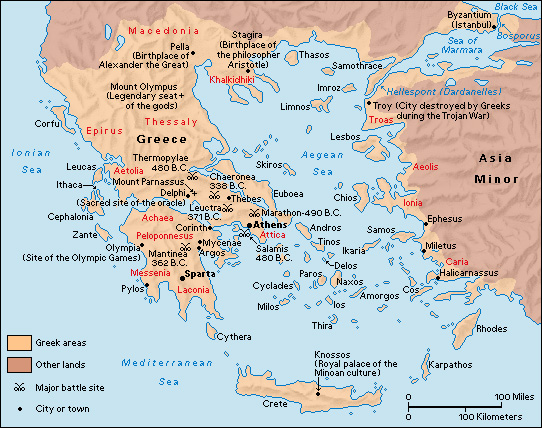Delphi, << DEHL fy, >> was a town situated on the southern slope of Mount Parnassus. The town had the oldest and most influential religious sanctuary in ancient Greece. It was in the district of Phocis.

The ancient Greeks believed that the site of Delphi was sacred to the god Apollo. It gained importance as early as the 1100’s B.C. Later, the site of Delphi became an international Greek shrine. The sanctuary of Delphi contained the main temple of Apollo, a stadium, and a theater. It also included many small buildings and monuments. The ancient Greeks held the Pythian Games in Delphi.
The temple contained the famous oracle, or prophet (see Oracle). A woman oracle, called the Pythia, would utter weird sounds while in a frenzy. People believed these were the words of Apollo. Temple priests interpreted these to the public.
Cities, as well as private individuals, sought the oracle’s advice. As a result, the oracle greatly influenced Greek religion, economics, and politics. This influence gradually waned in later Greek and Roman times. The Christian Roman emperor Theodosius closed the sanctuary in A.D. 390.
French scholars began excavations in 1880. The present-day village of Delphi, formerly called Kastri, is near the site of ancient Delphi.
See also Apollo.
